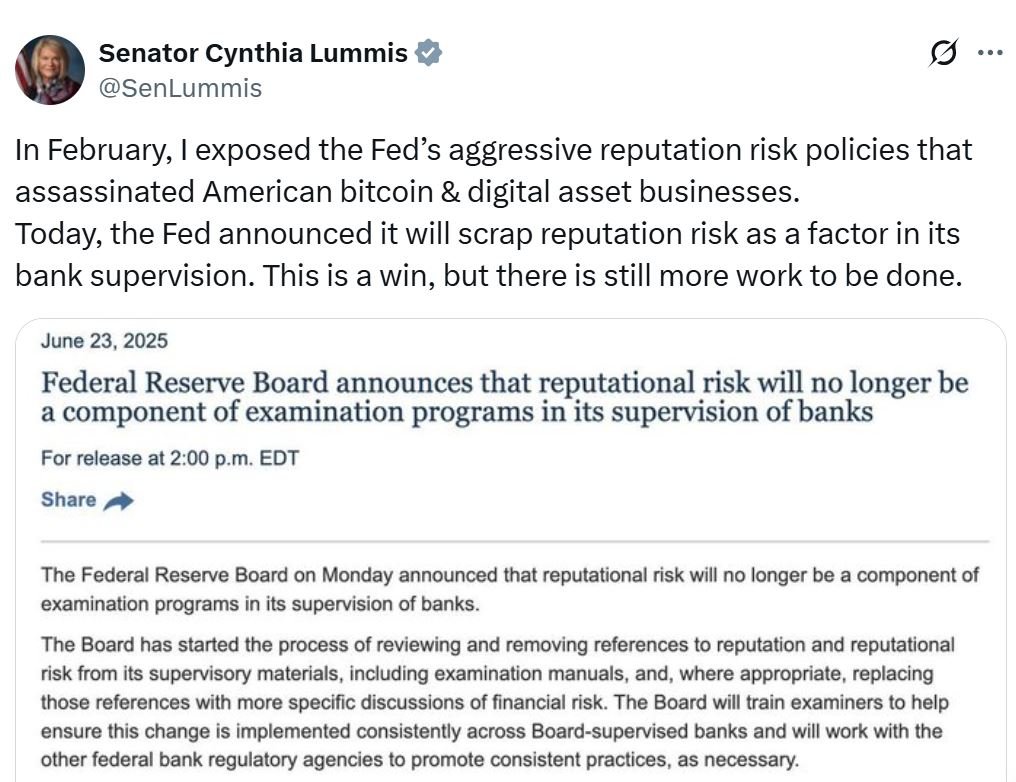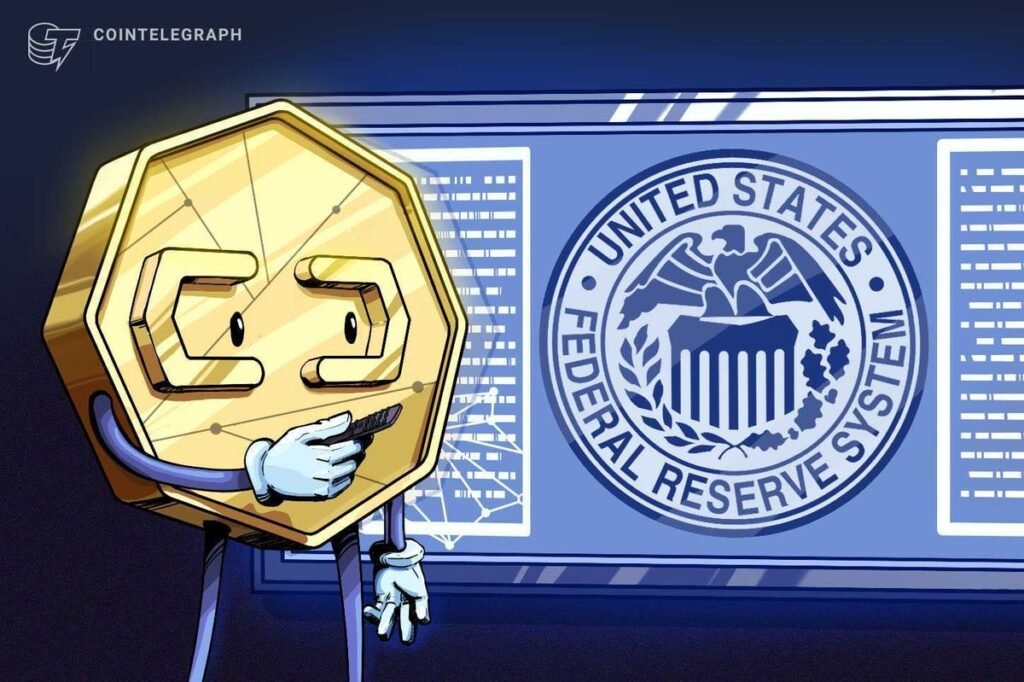The US Federal Reserve said it has directed its supervisors to no longer consider “reputational risk” in its oversight of banks, which the crypto industry had long argued was used to unfairly target and debank crypto firms.
Industries deemed risky face significant challenges in establishing or maintaining banking relationships, and this was seen driving the so-called Operation Chokepoint 2.0 when more than 30 technology and crypto companies were denied banking services in the US.
In a statement on Monday, the Federal Reserve Board said it has started reviewing and removing references to reputation and reputational risk from its supervisory materials and replacing them with more “specific discussions” around financial risk.
At the same time, the board plans to train examiners and ensure the change is implemented consistently across banks under its oversight, while also working with other federal bank regulatory agencies to promote consistent practices.
Banks will still need risk management practices
Despite the change, the Federal Reserve Board said it still expects banks to maintain strong risk management that complies with all laws and regulations.
The change is also not “intended to impact whether and how Board-supervised banks use the concept of reputational risk in their own risk management practices.”
The Federal Reserve defined reputational risk as the potential that negative publicity regarding an institution’s business practices, whether true or not, will cause a decline in the customer base, costly litigation, or revenue reductions.
A boon for crypto and banking
US Senator Cynthia Lummis said the aggressive reputation risk policies “assassinated American Bitcoin & digital asset businesses,” adding that “This is a win, but there is still more work to be done.”

Rob Nichols, president and CEO of the banking lobby group the American Bankers Association, also applauded the decision in a statement, saying, “The change will make the supervisory process more transparent and consistent.”
“We have long believed banks should be able to make business decisions based on prudent risk management and the free market, not the individual perspectives of regulators,” he added.
However, critics said eliminating reputational risk could obscure non-financial issues, impact bank stability, weaken oversight and potentially fuel riskier bank practices.
Regulators winding back crypto freeze out
Other regulators and oversight bodies in the US have started winding back crypto-related restrictions this year as well.
Related: SEC crypto staking guidance ‘major step forward’ for US: Crypto Council
The US Office of the Comptroller of the Currency confirmed in May that banks under its jurisdiction can trade crypto on behalf of customers and outsource some crypto activities to third parties.
The US Federal Deposit Insurance Corporation, an independent federal government agency, also said in a March letter that institutions under its oversight, including banks, can now engage in crypto-related activities without prior approval.
Magazine: SEC’s U-turn on crypto leaves key questions unanswered
Read the full article here
